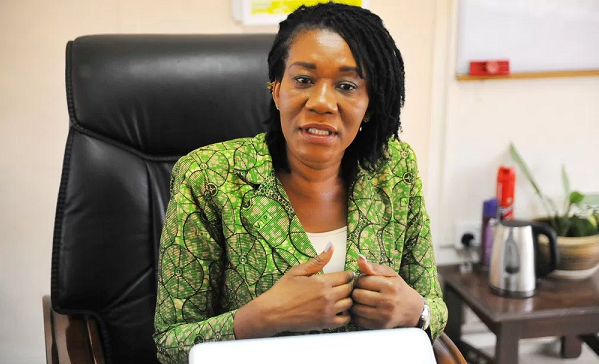The Executive Director of the National Population Council, Dr Leticia Adelaide Appiah has expressed concern over what she says are the escalating Ghanaian population and reproductive health issues.
According to her, many Ghanaian teenagers are getting pregnant particularly along the coastal communities, explaining that 30 per cent of women who are delivered of babies in the country are teenagers.
Statistics
She said almost a quarter of children in the Volta Region get pregnant during their teens, adding that Volta and Central Regions have teenage pregnancy rates of 22 and 21 per cent respectively.
Dr. Appiah made the remarks when she met Rev. Dr. Joyce Aryee at her office in Accra to discuss the effects of the soaring population and reproductive health issues in Ghana and solutions.
“The teenage pregnancy in the developed world is less than 2 per cent,” she said, adding “Our teenage pregnancy rate is 14 per cent nationwide”.
Dr Appiah explained that the standard Replacement Level Fertility rate (which is the total fertility rate — the average number of children born per woman—at which a population replaces itself from one generation to the next, without migration) is 2.1 but out of the total fertility rate of 4.2 for Ghana as compared to the global population growth rate of 2.5 which is important for economic development.
Population policy
She said although Ghana was among the earliest African countries to adopt a comprehensive population policy in 1969, despite several efforts to synchronize population management and economic development, much is required to help from all stake holders including the citizenry.
The 1969 Population Policy was aimed at reducing the country's high expected population growth rate which in 1960-1970 was 2.4 per annum with a target of 1.7 by 2000.
The 1969 population policy under the theme “Population Planning for National Progress and Prosperity” was last reviewed in 1994 to enable the government to accelerate the pace of economic modernization and improve the quality of life of Ghanaians.
According to her, the high population growth rate if not properly tackled effectively could slow down the country's effort at sustainable economic development, eradication of poverty, child labor and the realization of government's vision of ensuring quality life for Ghanaians as it is a requirement which would help speed up development and provide for the needs of all citizens.
Controlling measures
She expressed the worry that the country needs to look at streamlining population issues to help eradicate poverty and its related developmental issues.
“In Norway in 1960, the population was about 3.5 million and at the same time, Ghana had a population of 6.6 million and is now 29 plus million” she related
Dr. Appiah said many developed countries have taken keen interest in managing their population in line with their economic capabilities hence the growth we see being recorded by those developed countries which can easily be replicated in Ghana.
She therefore called on religious leaders as well as politicians, traditional rulers and opinion leaders to help put across the right messages so that their followers, would adopt better lifestyles that would aid in the speedy development of Ghana.
Rev. Dr. Joyce Aryee also took the opportunity to request support for the National Population Council’s agenda to help Ghana access quick development for its people by tackling population and its related issues.

